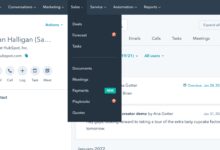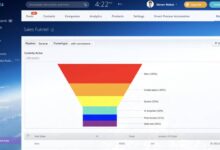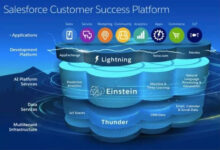Salesforce CRM Pricing: 7 Shocking Truths You Must Know in 2024
Navigating Salesforce CRM pricing can feel like decoding a secret language. With multiple editions, add-ons, and hidden costs, it’s easy to get overwhelmed. But don’t worry—we’ve cracked the code to help you make the smartest choice for your business.
Salesforce CRM Pricing: The Complete Breakdown for 2024

Salesforce remains the world’s #1 CRM platform, trusted by over 150,000 companies globally. But with great power comes complex pricing. Understanding Salesforce CRM pricing isn’t just about knowing the sticker price—it’s about seeing the full picture, including user licenses, add-on features, implementation costs, and long-term scalability. In this guide, we’ll dissect every layer of Salesforce CRM pricing to help you avoid costly surprises and choose the right plan for your business size, industry, and goals.
Why Salesforce CRM Pricing Is More Than Just a Monthly Fee
Most people assume Salesforce CRM pricing is simply a per-user, per-month cost. While that’s part of the equation, the real cost goes much deeper. Implementation, customization, training, third-party integrations, and ongoing support all contribute to the total cost of ownership (TCO). According to Nucleus Research, the average company spends 1.5x to 2x the license cost on implementation and services.
- Licensing fees are just the starting point
- Custom development and integration add significant costs
- Training and change management are often underestimated
“The true cost of Salesforce isn’t in the subscription—it’s in how you deploy and scale it.” — CRM Industry Analyst, Gartner
How Salesforce CRM Pricing Compares to Competitors
When evaluating Salesforce CRM pricing, it’s essential to benchmark it against competitors like HubSpot, Zoho CRM, and Microsoft Dynamics 365. While Salesforce often has a higher upfront cost, its depth of functionality, scalability, and ecosystem of apps (via AppExchange) can justify the investment for mid-to-large businesses.
- HubSpot offers a freemium model but lacks enterprise-grade features
- Zoho CRM is budget-friendly but requires more manual configuration
- Microsoft Dynamics 365 integrates well with Office 365 but has steeper learning curves
For a detailed comparison, check out Gartner’s CRM Market Guide.
Salesforce CRM Pricing Tiers: Which Edition Fits Your Business?
Salesforce offers several CRM editions, each tailored to different business needs and budgets. Choosing the right one depends on your team size, sales complexity, and required features. Let’s break down the core editions and their associated Salesforce CRM pricing.
Salesforce Essentials: The Entry-Level Option
Salesforce Essentials is designed for small businesses with up to 10 users. It’s the most affordable entry point into the Salesforce ecosystem, starting at $25 per user per month. This edition includes basic CRM functionality like contact management, lead tracking, email integration, and mobile access.
- Ideal for startups and small sales teams
- Limited customization and automation
- Available only via annual subscription
While Essentials is cost-effective, it lacks advanced features like workflow automation, forecasting, and territory management. For growing businesses, upgrading may be necessary within 12–18 months.
Salesforce Professional: The Most Popular Choice
Priced at $80 per user per month, Salesforce Professional is the go-to edition for small to mid-sized businesses. It includes all Essentials features plus advanced tools such as workflow automation, sales forecasting, territory management, and custom reporting.
- Supports up to 300 users
- Enables role-based access and security controls
- Integrates with over 3,000 apps via AppExchange
Professional Edition is often considered the “sweet spot” in Salesforce CRM pricing for businesses that need more than basics but aren’t ready for full-scale enterprise solutions. However, it still has limitations in API access and development capabilities.
Salesforce Enterprise: For Complex Sales Operations
At $165 per user per month, Salesforce Enterprise is built for organizations with complex sales processes, large teams, and custom integration needs. This edition unlocks full customization, API access, advanced analytics, and support for multi-currency and multi-language environments.
- Full declarative customization without coding
- Unlimited custom apps and objects
- Dedicated support and sandbox environments
Enterprise Edition is ideal for companies in regulated industries (like healthcare or finance) that require granular data control and audit trails. It’s also the foundation for building custom solutions using Salesforce Lightning.
Salesforce Unlimited: The Ultimate CRM Powerhouse
Priced at $380 per user per month, Salesforce Unlimited Edition is the most comprehensive offering. It includes everything in Enterprise plus 24/7 phone support, additional sandboxes, premium consulting hours, and priority access to new features.
- Designed for large enterprises with global operations
- Includes 10+ sandbox environments for testing
- Access to Salesforce’s Premium Support team
Unlimited Edition is often used by Fortune 500 companies that need maximum flexibility, scalability, and support. While the Salesforce CRM pricing is steep, the ROI can be substantial for organizations with high-volume sales and service operations.
Understanding Hidden Costs in Salesforce CRM Pricing
The listed price per user is just the tip of the iceberg. Many companies underestimate the total cost of ownership (TCO) because they overlook hidden or indirect expenses. Let’s uncover the most common hidden costs in Salesforce CRM pricing.
Implementation and Setup Fees
Implementing Salesforce typically requires professional services, especially for Enterprise and Unlimited editions. Costs can range from $5,000 for small teams to over $100,000 for large-scale deployments. These fees cover data migration, system configuration, integration with existing tools, and user training.
- Small business implementation: $5,000–$20,000
- Mid-market: $20,000–$75,000
- Enterprise: $75,000–$250,000+
Some companies opt for Salesforce’s Quick Start program, which offers a fixed-price implementation package. Learn more at Salesforce Implementation Services.
Customization and Development Costs
While Salesforce allows no-code customization, complex workflows, custom objects, and automation often require developers. Hiring a Salesforce consultant or developer can cost $100–$200 per hour. Over time, these costs can exceed the annual license fee.
- Custom dashboards and reports: $2,000–$10,000
- Workflow automation: $5,000–$25,000
- Integration with ERP or marketing tools: $10,000–$50,000
Using tools like Salesforce Flow can reduce development costs, but only if your team has the training to use them effectively.
Training and Change Management
Even the best CRM fails if users don’t adopt it. Training costs are often overlooked in Salesforce CRM pricing discussions. On average, companies spend $500–$1,500 per user on training programs, e-learning modules, and change management initiatives.
- Basic user training: $500/user
- Admin training: $1,000–$2,000
- Ongoing support and coaching: $10,000+/year
According to Salesforce, companies that invest in user adoption see 3x higher ROI. Consider leveraging Trailhead, Salesforce’s free online learning platform, to reduce training costs.
Salesforce Sales Cloud vs. Service Cloud: Pricing Differences Explained
Salesforce offers specialized clouds for different business functions. The two most widely used are Sales Cloud and Service Cloud. While they share the same core platform, their Salesforce CRM pricing and feature sets differ significantly.
Sales Cloud: Driving Revenue with Automation
Sales Cloud is designed to streamline the sales process—from lead generation to closing deals. It includes features like lead scoring, opportunity management, sales forecasting, and pipeline analytics. All Salesforce editions (Essentials, Professional, Enterprise, Unlimited) are based on Sales Cloud.
- Essentials: $25/user/month – basic lead and contact management
- Professional: $80/user/month – workflow automation and forecasting
- Enterprise: $165/user/month – full customization and API access
- Unlimited: $380/user/month – premium support and sandboxes
Sales Cloud is ideal for B2B and B2C sales teams that need visibility into their pipeline and want to automate repetitive tasks. For more details, visit Salesforce Sales Cloud Overview.
Service Cloud: Elevating Customer Support
Service Cloud focuses on customer service and support operations. It includes case management, knowledge base, live chat, AI-powered chatbots (Einstein Bots), and omnichannel routing. Pricing starts at $75/user/month for the Digital Edition and goes up to $300/user/month for the Unlimited Edition.
- Digital: $75 – chat, email, and social support
- Professional: $100 – case management and knowledge base
- Enterprise: $150 – workflow automation and CTI integration
- Unlimited: $300 – 24/7 support and sandboxes
Service Cloud is perfect for companies with high-volume customer service needs, such as telecom, retail, or SaaS providers. It integrates seamlessly with Sales Cloud, enabling a 360-degree view of the customer.
Can You Mix Sales and Service Clouds?
Yes—and many companies do. Salesforce allows you to license users across multiple clouds. For example, your sales team can use Sales Cloud Professional at $80/user/month, while your support team uses Service Cloud Professional at $100/user/month. This flexibility is one of the strengths of Salesforce CRM pricing.
- Unified data across clouds
- Single sign-on and shared dashboards
- Higher total cost but better ROI through integration
However, managing multiple clouds requires careful planning and potentially additional admin resources.
Salesforce CRM Pricing for Nonprofits and Education
Salesforce isn’t just for for-profit businesses. Through its Power of Us Program, Salesforce offers significant discounts—or even free licenses—to eligible nonprofits and educational institutions. This dramatically changes the Salesforce CRM pricing equation for mission-driven organizations.
Nonprofit Cloud: Empowering Social Impact
Nonprofit Cloud is built on the Salesforce platform and tailored for charities, NGOs, and advocacy groups. Eligible organizations can receive up to 10 free licenses of Salesforce Enterprise Edition. Additional licenses are available at a 90% discount.
- Free licenses: Up to 10 users
- Discounted licenses: $25/user/month (normally $165)
- Includes donor management, grant tracking, and volunteer coordination
To qualify, organizations must be registered 501(c)(3) nonprofits or equivalent. Apply at Salesforce.org.
Education Cloud: Transforming Student Engagement
Education Cloud helps schools, colleges, and universities manage student recruitment, retention, and alumni relations. Like Nonprofit Cloud, it offers discounted pricing and grants for qualified institutions.
- K–12 schools: Free or heavily discounted
- Higher education: $12/user/month for core CRM features
- Includes academic advising, event management, and fundraising tools
Education Cloud integrates with learning management systems (LMS) and student information systems (SIS), making it a powerful tool for modern educational institutions.
How to Apply for Salesforce Discounts
Applying for Salesforce’s nonprofit or education discounts is straightforward but requires documentation. Steps include:
- Verify your organization’s status (e.g., 501(c)(3))
- Register on Salesforce.org
- Submit required documents (EIN, articles of incorporation)
- Wait for approval (typically 2–4 weeks)
Once approved, you gain access to discounted pricing, free training, and a community of nonprofit users.
Salesforce Add-Ons and Premium Features: What They Cost
Beyond the base editions, Salesforce offers a wide range of add-ons that enhance functionality. These can significantly impact Salesforce CRM pricing, so it’s crucial to evaluate which ones your business truly needs.
Einstein AI: Smarter Insights for Sales and Service
Salesforce Einstein is an AI-powered suite that delivers predictive analytics, automated insights, and smart recommendations. It’s available as an add-on for Sales Cloud, Service Cloud, and Marketing Cloud.
- Einstein Analytics: $75/user/month
- Einstein Lead Scoring: $50/user/month
- Einstein Bots: $200–$400/month (based on usage)
While powerful, Einstein requires clean data and proper configuration to deliver value. Many companies underestimate the setup effort required.
Marketing Cloud: Engaging Customers at Scale
Marketing Cloud is a separate product that integrates with Salesforce CRM to enable email marketing, social media campaigns, and customer journey mapping. Pricing is not per-user but based on contacts and features used.
- Starter Package: ~$1,000/month (up to 50,000 contacts)
- Standard: $2,500+/month
- Premium: Custom pricing (enterprise-level)
Marketing Cloud is ideal for companies running large-scale digital campaigns. However, it’s one of the most expensive Salesforce products and requires dedicated marketing ops resources.
Industry Clouds: Tailored Solutions for Specific Sectors
Salesforce offers Industry Clouds for healthcare (Health Cloud), financial services (Financial Services Cloud), and manufacturing (Manufacturing Cloud). These are premium offerings with custom pricing.
- Health Cloud: Starts at $300/user/month
- Financial Services Cloud: $250–$500/user/month
- CPQ (Configure, Price, Quote): $75–$150/user/month
These clouds include specialized data models, compliance features, and workflows. They’re designed for complex regulatory environments and high-value sales cycles.
How to Reduce Salesforce CRM Pricing Without Sacrificing Value
While Salesforce is a premium product, there are smart ways to reduce costs without compromising functionality. Here are proven strategies to optimize your Salesforce CRM pricing.
Negotiate Your Contract and Leverage Discounts
Salesforce rarely gives discounts upfront, but they are negotiable—especially for annual commitments or multi-year contracts. Companies that negotiate can save 10–25% on list prices.
- Commit to 2–3 year contracts for deeper discounts
- Bundle Sales and Service Cloud for volume pricing
- Ask about seasonal promotions or partner deals
Working with a Salesforce partner can also unlock additional savings and implementation support.
Optimize User Licenses and Roles
One of the biggest cost drivers is over-licensing. Many companies assign full Salesforce licenses to users who only need read-only access. Consider using:
- Lightning Platform Starter ($25/user/month) for internal collaborators
- Chatter Free (free) for employees who only need communication
- Customer Community licenses ($7–$100/user/month) for external users
Regularly audit user roles and deactivate inactive accounts to control costs.
Leverage Free Tools and Open Source Solutions
Salesforce offers several free resources that can reduce dependency on paid add-ons:
- Trailhead: Free learning platform for admins and developers
- AppExchange: Thousands of free and low-cost apps
- Flow Builder: No-code automation tool included in most editions
By training your team on Trailhead, you can reduce reliance on expensive consultants.
Future Trends in Salesforce CRM Pricing (2024 and Beyond)
Salesforce CRM pricing is evolving. As cloud technology advances and customer expectations shift, Salesforce is adapting its pricing models to stay competitive and innovative.
Shift Toward Usage-Based and Subscription Bundles
In 2024, Salesforce is experimenting with more flexible pricing models, including usage-based billing for AI and analytics features. Instead of flat per-user fees, some add-ons may charge based on data volume or API calls.
- Potential for lower costs for light users
- Greater transparency in billing
- Challenges in budget forecasting
This trend mirrors broader SaaS industry shifts toward consumption-based pricing.
Increased Focus on ROI and Value-Based Pricing
Salesforce is placing more emphasis on proving ROI. New pricing packages may include performance benchmarks, adoption metrics, and success coaching to justify higher costs.
- More bundled services with premium editions
- ROI calculators and TCO tools
- Partnerships with consulting firms for outcome-based pricing
Businesses can expect more value-driven pricing rather than just feature-based tiers.
Expansion of Free and Low-Cost Entry Points
To attract small businesses and startups, Salesforce is expanding free and low-cost options. Salesforce Essentials, Free CRM for small teams, and Trailhead learning are part of this strategy.
- Free CRM with limited features
- Startup programs with discounted rates
- Increased investment in self-service tools
This democratization of CRM access could reshape Salesforce CRM pricing in the coming years.
What is the starting price for Salesforce CRM?
Salesforce CRM starts at $25 per user per month with the Essentials edition. This is the most affordable option for small businesses with basic CRM needs.
Is there a free version of Salesforce CRM?
Salesforce does not offer a completely free version, but eligible nonprofits can receive up to 10 free Enterprise licenses through the Power of Us Program. Additionally, Salesforce offers a free 30-day trial for all paid editions.
What factors influence Salesforce CRM pricing?
Key factors include the edition (Essentials, Professional, Enterprise, Unlimited), number of users, required clouds (Sales, Service, Marketing), add-ons (Einstein AI, CPQ), implementation costs, and ongoing support needs.
Can I customize my Salesforce CRM package?
Yes. Salesforce allows customization through edition selection, add-on features, and user license types. You can mix and match Sales Cloud, Service Cloud, and other products to build a tailored solution.
How can I reduce my Salesforce CRM costs?
You can reduce costs by negotiating contracts, optimizing user licenses, using free tools like Trailhead, leveraging nonprofit discounts, and avoiding unnecessary add-ons. Regular audits of usage and licensing can also help control expenses.
Understanding Salesforce CRM pricing is essential for making a smart investment. From entry-level Essentials at $25/user/month to enterprise-grade Unlimited at $380/user/month, the platform offers scalable solutions for every business size. However, the real cost goes beyond the monthly fee—implementation, customization, training, and add-ons all contribute to the total. By evaluating your needs, leveraging discounts, and optimizing usage, you can maximize ROI and avoid budget overruns. As Salesforce evolves with usage-based models and expanded free offerings, staying informed will help you adapt and thrive in 2024 and beyond.
Further Reading:


